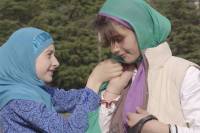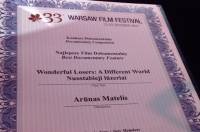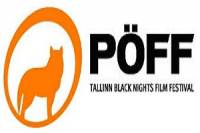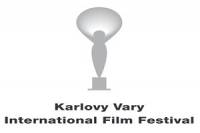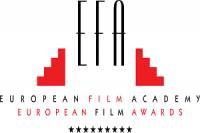Courtesy of Creative Europe Desk POLAND
| OFFICIAL NAME OF COUNTRY | POLAND |
| FILM SUPPORTING INSTITUTIONS | |
| OFFICIAL NAME | Polish Film Institute |
| ADDRESS | Krakowskie Przedmieście 21/23, 00-071 Warsaw, Poland |
| WEBPAGE | www.pisf.pl |
| CHIEF EXECUTIVE | Acting Director Izabela Kiszka-Hoflik |
| PUBLIC FUNDING AVAILABLE IN EUROS | 30 M EUR |
| PERCENTAGE OF PUBLIC FUNDING DEDICATED TO ANIMATION | For development and production - 13.5% * |
| AVERAGE PRODUCTION BUDGET IN €: | |
| - FOR SHORT ANIMATED FILM | 46 078, 84 EUR |
| - FOR FEATURE ANIMATED FILM | 498,701 EUR* |
| - FOR EPISODE OF ANIMATED TV SERIES | 16.468,42 EUR**/ 3.703 EUR |
| TAX INCENTIVES | YES/NO |
| TAX INCENTIVES PERCENTAGE | |
| REGIONAL FUNDS FOR ANIMATION | YES/NO |
| AVAILABLE SCHOLARSHIPS FOR ANIMATED FILM PROFESSIONALS | YES/NO |
| Film with PFI funding, produced in 2016, copyright criterium | Total number of production: 15 Number of short-lenght films: 7 Number of medium-lenght films: 4 Number of feature films: 1 Number of series: 3 (altogheter 41 episodes) |
| NATIONAL TV BROADCASTER | |
| OFFICIAL NAME | Telewizja Polska S.A. |
| ADDRESS | 17 Jana Pawła Woronicza Street, Warsaw, Poland |
| WEBPAGE | www.tvp.pl |
| COMMISSIONING EDITOR RESPONSIBLE FOR ANIMATION | N/A |
| FUNDING DEDICATED TO ACQUISITION OF ANIMATED CONTENT FROM CEE COUNTRIES IN THE LAST 5 YEARS | N/A |
| FUNDING DEDICATED TO PRODUCTION OF LOCAL ANIMATED CONTENT IN THE LAST 5 YEARS | N/A |
| NUMBER OF MINUTES PRODUCED IN THE LAST 5 YEARS | N/A |
| DISTRIBUTION INFO | |
| ADMISSIONS IN CINEMAS IN 2016 | 52,1 mln |
| NUMBER OF SCREENS | app. 1200 |
| AVERAGE TICKET PRICE IN EUROS | 4,25 |
| INTERNET PENETRATION RATE | |
| PRODUCTION INFO | |
| NUMBER OF FEATURE ANIMATED FILMS PRODUCED IN THE PAST 5 YEARS | 2 |
| - NUMBER OF 100% NATIONAL FILMS | 1 |
| - NUMBER OF MINORITY CO-PRODUCTIONS | 1 |
| - NUMBER OF MAJORITY CO-PRODUCTIONS | 0 |
| NUMBER OF SHORT ANIMATED FILMS PRODUCED IN PAST 5 YEARS | 47 |
| - NUMBER OF 100% NATIONAL FILMS | 44 |
| - NUMBER OF MINORITY CO-PRODUCTIONS | 0 |
| - NUMBER OF MAJORITY CO-PRODUCTIONS | 3 |
| NUMBER OF TV SERIES EPISODES PRODUCED IN PAST 4 YEARS | 11 |
| EDUCATION | |
| NUMBER OF ANIMATION SCHOOLS | Animation Films And Film Special Effects studies at Lodz Film School |
| NUMBER OF ANIMATION COMPANIES | approx. 30 |
| ASSOCIATION OF ANIMATED FILM | |
| - OFFICIAL NAME | Polish Animation Producers Association |
| - WEBPAGE | http://sppa.eu/ |
| - CHIEF EXECUTIVE | Robert Jaszczurowski |
| ANIMATION FILM FESTIVALS | |
| NUMBER OF ANIMATION FILM FESTIVALS | 4 |
| WEBPAGES OF FESTIVALS | International Film Festival Etiuda&Anima |
| http://etiudaandanima.com/ | |
| International Animation Art Festival Animart | |
| http://animart.pl/ | |
| International Animated Film Festival Animator | |
| http://www.animator-festival.com/ | |
| OPLA! | |
| http://www.polskaanimacja.pl/ | |
| TRADITION OF ANIMATION AND HISTORY | |
| SHORT PRESENTATION OF THE HISTORY OF ANIMATION IN MAXIMUM 500 CHARACTERS (for example main awards and authors, important milestones, trends...) | 2017 marks the 70th anniversary of Polish film animation. Throughout the history there were many worldwide known and awarded Polish animators such as Szczechura, Lenica, Borowczyk, Giersz, Kucia and many more. Among the numerous international awards there are Oscar for "Tango" by Rybczynski (1983), Oscar nomination for Baginski’s “Cathedral” in 2002 and an award for “Peter and Wolf” by S.Templeton (Polish-British coproduction) in 2008. This year, after 6 years of creative development, its premiere had the world's first fully painted feature film “Loving Vincent” by D.Kobiela. |
Courtesy of Creative Europe Desk MACEDONIA
| OFFICIAL NAME OF COUNTRY | Republic of Macedonia |
| FILM SUPPORTING INSTITUTIONS | |
| OFFICIAL NAME | Macedonian Film Agency |
| ADDRESS | 8 March, Nr. 4, 1000 Skopje, Macedonia |
| WEBPAGE | www.filmagency.gov.mk |
| CHIEF EXECUTIVE | Gorjan Tozija |
| PUBLIC FUNDING AVAILABLE IN EUROS | Public funding is provided only by Macedonian Film Agency which annual budget for 2017 is approx. 6M euros |
| PERCENTAGE OF PUBLIC FUNDING DEDICATED TO ANIMATION | not specified |
| AVERAGE PRODUCTION BUDGET IN €: | Annual budget for 2017 is approx. 6M euros |
| - FOR SHORT ANIMATED FILM | N/A *Macedonian Film Agency has not specified budget for each separate scheme |
| - FOR FEATURE ANIMATED FILM | N/A *Macedonian Film Agency has not specified budget for each separate scheme |
| - FOR EPISODE OF ANIMATED TV SERIES | N/A *Macedonian Film Agency has not specified budget for each separate scheme |
| TAX INCENTIVES | YES |
| TAX INCENTIVES PERCENTAGE | 20% |
| REGIONAL FUNDS FOR ANIMATION | NO |
| AVAILABLE SCHOLARSHIPS FOR ANIMATED FILM PROFESSIONALS | YES |
| NATIONAL TV BROADCASTER | |
| OFFICIAL NAME | Macedonian Radio Television |
| ADDRESS | bul. Goce Delcev b.b. 1000 Skopje, Macedonia |
| WEBPAGE | www.mrt.com.mk |
| COMMISSIONING EDITOR RESPONSIBLE FOR ANIMATION | / |
| FUNDING DEDICATED TO ACQUISITION OF ANIMATED CONTENT FROM CEE COUNTRIES IN THE LAST 5 YEARS | / |
| FUNDING DEDICATED TO PRODUCTION OF LOCAL ANIMATED CONTENT IN THE LAST 5 YEARS | / |
| NUMBER OF MINUTES PRODUCED IN THE LAST 5 YEARS | / |
| DISTRIBUTION INFO | |
| ADMISSIONS IN CINEMAS IN 2016 | 366,878 |
| NUMBER OF SCREENS | 13 * |
| AVERAGE TICKET PRICE IN EUROS | 3,5 |
| INTERNET PENETRATION RATE | 1,439,089 internet users |
| PRODUCTION INFO | |
| NUMBER OF FEATURE ANIMATED FILMS PRODUCED IN THE PAST 10 YEARS | / |
| - NUMBER OF 100% NATIONAL FILMS | / |
| - NUMBER OF MINORITY CO-PRODUCTIONS | / |
| - NUMBER OF MAJORITY CO-PRODUCTIONS | / |
| NUMBER OF SHORT ANIMATED FILMS PRODUCED IN PAST 5 YEARS (2012-2017) | 8 |
| - NUMBER OF 100% NATIONAL FILMS | 7 |
| - NUMBER OF MINORITY CO-PRODUCTIONS | 0 |
| - NUMBER OF MAJORITY CO-PRODUCTIONS | 1 |
| NUMBER OF TV SERIES EPISODES PRODUCED IN PAST 5 YEARS | / |
| EDUCATION | |
| NUMBER OF ANIMATION SCHOOLS | 1 (University of audiovisual arts) |
| NUMBER OF ANIMATION COMPANIES | 4 |
| ASSOCIATION OF ANIMATED FILM | / |
| - OFFICIAL NAME | / |
| - WEBPAGE | / |
| - CHIEF EXECUTIVE | / |
| ANIMATION FILM FESTIVALS | |
| NUMBER OF ANIMATION FILM FESTIVALS | 1 festival: Animax |
| WEBPAGES OF FESTIVALS | www.animaxskopjefest.mk |
| TRADITION OF ANIMATION AND HISTORY | |
| SHORT PRESENTATION OF THE HISTORY OF ANIMATION IN MAXIMUM 500 CHARACTERS (for example main awards and authors, important milestones, trends...) | |
| * Cineplexx (9 screens), Cinema Millenium (1 screen), Cinema Frosina (1 screen), Cinema Centar of Culture Bitola (1 screen), Macedonian Cinematheque (1 screen) |
Courtesy of Creative Europe Desk BULGARIA
| OFFICIAL NAME OF COUNTRY | Bulgaria |
| FILM SUPPORTING INSTITUTIONS | |
| OFFICIAL NAME | Bulgarian National Film Center |
| ADDRESS | 2A Dondukov Blvd., Sofia 1000 |
| WEBPAGE | https://www.nfc.bg/ |
| CHIEF EXECUTIVE | Mrs. Jana Karaivanova |
| PUBLIC FUNDING AVAILABLE IN EUROS | 6 750 000 |
| PERCENTAGE OF PUBLIC FUNDING DEDICATED TO ANIMATION | 6,45% |
| AVERAGE PRODUCTION BUDGET IN €: | 6025 (per minute) |
| - FOR SHORT ANIMATED FILM | N/A |
| - FOR FEATURE ANIMATED FILM | N/A |
| - FOR EPISODE OF ANIMATED TV SERIES | N/A |
| TAX INCENTIVES | NO |
| TAX INCENTIVES PERCENTAGE | |
| REGIONAL FUNDS FOR ANIMATION | NO |
| AVAILABLE SCHOLARSHIPS FOR ANIMATED FILM PROFESSIONALS | NO |
| NATIONAL TV BROADCASTER | |
| OFFICIAL NAME | Bulgarian National Television |
| ADDRESS | 29 San Stefano Str, Sofia |
| WEBPAGE | https://www.bnt.bg/en |
| COMMISSIONING EDITOR RESPONSIBLE FOR ANIMATION | N/A |
| FUNDING DEDICATED TO ACQUISITION OF ANIMATED CONTENT FROM CEE COUNTRIES IN THE LAST 5 YEARS | N/A |
| FUNDING DEDICATED TO PRODUCTION OF LOCAL ANIMATED CONTENT IN THE LAST 5 YEARS | N/A |
| NUMBER OF MINUTES PRODUCED IN THE LAST 5 YEARS | N/A |
| DISTRIBUTION INFO | |
| ADMISSIONS IN CINEMAS IN 2016 | 5 585 000 (for entire industry) / 175 000 (Bulgarian productions |
| NUMBER OF SCREENS | 209 |
| AVERAGE TICKET PRICE IN EUROS | 4,52 |
| INTERNET PENETRATION RATE | N/A |
| PRODUCTION INFO | |
| NUMBER OF FEATURE ANIMATED FILMS PRODUCED IN THE PAST 10 YEARS | 81 |
| - NUMBER OF 100% NATIONAL FILMS | N/A |
| - NUMBER OF MINORITY CO-PRODUCTIONS | N/A |
| - NUMBER OF MAJORITY CO-PRODUCTIONS | N/A |
| NUMBER OF SHORT ANIMATED FILMS PRODUCED IN PAST 5 YEARS | 51 |
| - NUMBER OF 100% NATIONAL FILMS | N/A |
| - NUMBER OF MINORITY CO-PRODUCTIONS | N/A |
| - NUMBER OF MAJORITY CO-PRODUCTIONS | N/A |
| NUMBER OF TV SERIES EPISODES PRODUCED IN PAST 5 YEARS | N/A |
| EDUCATION | |
| NUMBER OF ANIMATION SCHOOLS | 3 |
| NUMBER OF ANIMATION COMPANIES | N/A |
| ASSOCIATION OF ANIMATED FILM | Association of Independent Animators |
| - OFFICIAL NAME | Bulgarian Association of Independent Cartoon Animation and Artists - Proiko Proikov. |
| - WEBPAGE | http://www.baicaa.org/en/home/ |
| - CHIEF EXECUTIVE | Mrs. Nadejda Slavova |
| ANIMATION FILM FESTIVALS | |
| NUMBER OF ANIMATION FILM FESTIVALS | 3 |
| WEBPAGES OF FESTIVALS | http://www.zlatenriton.bg/ |
| http://www.varnafest.org/ | |
| http://2018.animationfest-bg.eu/bg/home/ | |
| TRADITION OF ANIMATION AND HISTORY | |
| SHORT PRESENTATION OF THE HISTORY OF ANIMATION IN MAXIMUM 500 CHARACTERS (for example main awards and authors, important milestones, trends...) | Some researchers like Nadejda Marinchevska state that 1915 is the birth year of the Bulgarian animated cinema. The 80's were its strongest period.The 1984 film by Slav Bakalov "Mariage" won the Best animation award in Cannes. The production of animated films in Bulgaria in the 1980s has doubled since the 1970s. An apotheosis of its success is the nomination for Student Oscar for "The Canfilm", created by Zlatin Radev. The last great success of an animator from the native animation school is Teo Ushev's achievement in the Oscar prize competition in 2017. |
TALLINN: Industry@Tallinn & Baltic Event Awards 2017 were announced on 30 November 2017. Projects and producers from the Czech Republic, Romania, Lithuania, Latvia, Estonia and Georgia are among the winners.
Marine Gulbiani is currently in production with documentary Before Father Is Back, a coproduction between France, Georgia and Germany.
At at ceremony in Tallinn tonight the 2017 awards of Industry@Tallinn &; Baltic Event were presented.
'Wonderful Losers. A Different World" by DGA-winner A. Matelis wins Best Documentary at Warsaw Film Festival
Festivals 24-10-2017
'Wonderful Losers. A Different World", from Lithuanian film director Arunas Matelis, was awarded the Best Documentary Feature at the 33rd edition of the International Warsaw Film Festival (WFF). As the winner at one of the top eight 'A' class film festivals (along with Cannes, Venice and Berlin) in Europe, Arunas Matelis' documentary will also be eligible in the selection for the European Film Academy Awards.
'Wonderful Losers. A Different World" uncovers the invisible side of "Giro d'Italia" - one of the harshest as well as one of the biggest cycling races in the world. Despite its popularity, few people know about the complex, hierarchal structure of the race which often bears similarity to monastic rules, including unconditional acceptance and self-sacrifice. The film focuses on cyclists who always ride in the back, carry the water for others and are destined to lose at the very beginning of the race - the so-called "gregarious"/"domestique", the monks of professional cycling, ready to overcome enormous challenges in order to help the leader of the team win the race.
"It's a film that immerses you into its world from the first seconds. With every frame the cyclists' pain becomes more and more that of your own, their wounds gradually become yours, and only when everything ends you are able to go back to your own reality. This story can be as mesmerizing even for those who don't fancy cycling races or don't even cycle themselves - it's about passion and sacrifice for a common goal, a sacrifice for another person", - claims Stefan Laudyn, the director of the WFF.
Film director Arunas Matelis highlights the importance of winning the Best Documentary Feature at the WFF, claiming that the stories selected by this festival are among the most powerful in the world. Winning in the competition programme is a remarkable accomplishment for any film director, and he feels honored to have been able to present an eight-year long production to the international audience.
"The film lasts 71 minutes and it took me the same amount of time to answer the questions from the audience. The applause it received goes not only for me but for the whole team too, as they all showed outstanding determination and ambition at work despite the difficulties we faced, e.g. extremely dynamic and complex shooting conditions. It would have been impossible to make this film without my amazing crew," - says A. Matelis.
The premier at the WFF received positive response from the audience, as many viewers appreciated the fact that the director had the courage to
draw the backstage curtains of the enduring cycling races. It was the first time somebody had chosen to use the language of cinema to talk not about the winners who usually take all the credit, but rather about those who stay in the shadow. These "gregarious"/"domestique" opened up their hearts to the director and let him watch their daily routine - exhausting training and strenuous races where there's not even a chance for a personal victory, only the duty to overcome the harshest challenges in order to help your team's leader triumph.
"How did you manage to get so close to the heroes of your film?" was among the most popular questions at the first screening. A. Matelis admitted that gaining cyclists' trust was among the most difficult tasks for the whole crew. "Days and even weeks had to pass before the "gregarious" started to notice our persistence to capture the smell of sweat instead of the taste of victory. Very often we had to shoot in the most dangerous conditions and risk the safety of the crew. I believe this is what finally made the heroes fully trust our intentions", - claims the director.
"Wonderful Losers. A Different World" is one of the most complex and riskiest documentary projects in Europe - it's been 40 years since any film director was given the permission to shoot the race from the inside with his own crew. Once there was a green light, the Italian press had been extremely interested in the development of this project. "None of my awards or earlier films have earned as much attention in Italy as "Wonderful Losers. A Different World", - adds the author of the film with a smile.
"Arunas Matelis takes a risky move: he speaks not about the winners, but instead - the sweat-pouring sportsmen who remain in the shadow", - still in astonishment the Italian daily newsletter La Repubblica recently wrote.
"I was intrigued to understand those who cross the finishing line second though could be there first, those who choose to be someone else's sword-bearers. It's hard to imagine a bigger paradox - years after years the sportsmen undergo rigorous training and aim for constant improvement just for the sake of someone else's victory. Even before the actual shooting began I saw this phenomenon as a universal topic. A conscious sacrifice for another person. Honestly, it's not even important whom we are talking about - the cyclists who set aside their ambitions to win, somebody in a couple who gives up his/her career for another's welfare, a mother who stays at home to bring up her kids or children who sacrifice their lives to take care of their ill parents. At the end of the day, the criteria defining the winners in each situation become even more unclear", - says Matelis.
Up until Arunas Matelis was allowed to observe the "Giro d'Italia" race from within, the last independent filmmaker to do so was Jorgen Leth, director of the legendary film "Stars and Watercarriers", released in 1973.
"Getting a permission to shoot the famous race after a forty-year gap was a huge challenge and an outstanding victory at he same time. It was only when the shooting began did we understand why "Giro d'Italia" takes place in a closed and carefully guarded terrain where nobody, except for the sportsmen, their teams and medical-car doctors medical were allowed to enter",- admits the director.
Arunas Matelis, a well-known documentary film director, has already been recognized in the international film community for his earlier films. Numerous significant prizes include the "Directors Guild of America" award for "Outstanding Directorial Achievement in Documentaries", making his "Before Flying Back to the Earth" the best documentary in the world in 2007. Interestingly, this was also his last film before the "Wonderful Losers. A Different World". Hoping for new, captivating stories from Arunas Matelis, the members of the Directors Guild of America were surprised and confused to receive nothing for a long time.
"It took me four years to start shooting a new film. "Before Flying Back to the Earth" was born out of my own painful personal experience. For years it felt as if I am not allowed to tell a new story unless it touches me personally as much as the previous one. Many times I would arrive at a location to shoot and find myself unable to even touch the camera for the fear that I won't be able to put all of myself into the new film. Gladly, the idea for "Wonderful Losers. A Different World" changed everything and brought back the desire to create again. Cycling is my childhood dream that never came true", - admits the director and delivers a story full of personal experience encrypted in the symbolic language of cinema.
The film "Wonderful Losers. A Different World" is the biggest European co-production so far. Initiated by Arunas Matelis' own production house "Studio Nominum" (Lithuania), the film was co-produced with an array of foreign countries, including Italy, Switzerland, Ireland, Northern Ireland, Latvia, Spain and Belgium.
The premier at the International Warsaw Film Festival was made possible thanks to the Lithuanian Film Center, Audiovisual authors and producers rights association "AVAKA", and the Embassy of the Republic of Lithuania to the Republic of Poland.
The national premier in Lithuania is expected to be held at the beginning of 2018.
The Black Nights Film Festival completes the lineup for the First Feature Competition programme
Festivals 24-10-2017
Adding to the previously announced five titles, the Black Nights Film Festival announces 11 others that will be part of the First Feature Competition programme, including Brazil’s candidate for the Academy Awards.
Entering it’s third year, the First Feature Competition is an international competition programme for first-time feature directors that will see a six-member jury handing out the award for best film and two special jury awards for outstanding achievements in whichever category the jury deems worthy of complimenting.
According to Tiina Lokk, the head of programme of the festival, a standout quality of this year’s selection is the maturity of the authors, both in terms of how they handle their topics, how they generalise and how they apprehend the whole of the film. ‘It has less of the youthful bravado than previous years, being more mature and balanced. Although we have managed to get great debuts every year, I believe the programme as a whole has made a qualitative step forward.’
‘But it is also a somewhat calmer and inward looking year, as fierce statements on bigger, geopolitically relevant social issues such as the economic crisis and refugee crisis of last year have been substituted for close relations, the overcoming of generational differences, forgiveness and finding each other’, she added.
Having made an impressive career as an editor (Tree of Life, City of God, Motorcycle Diaries) and having won the BAFTA and been nominated for an Academy Award for his work on the film City of God, director Daniel Rezenda presents his feature debut as a director - Bingo. It is an ecstatic story of a man who’s driven to prove his artistic talent, becoming the most successful clown in television history, but with a hefty psychological toll. The film, based on a true story, is Brazil’s candidate for the Academy Award.
Another entry from Brazil in the competition, Neurotic Quest for Serenity is the feature debut of Paulinho Caruso and Teodoro Poppovic, a lively, satirical take on the the world of modern show business, exposing all its operational mechanisms and societal effects with intelligent glee. The story centers on an A-level film and a TV actress reaching her career’s first psychological crisis after receiving an encrypted letter from her ghostwriter.
Icelandic director-scriptwriter Guðrún Ragnarsdóttir’s opens the world of children and their fantasies with a delicate and imaginative touch in Summer Children, a tale that is set in the 1970’s and based on personal experiences. A pair of siblings, five and six years old, are sent to a countryside summer camp after their parents’ divorce. What was supposed to be a temporary solution drags on for longer than anticipated, up to the point where the children start to plan an escape from the repressive institution.
Having already visited several festivals with his documentaries and short films, Macedonian director-scriptwriter Gjorce Staverski offers a satirical critique of Eastern European “cowboy capitalism” in his black comedy Secret Ingredient. It is a tale about a train mechanic who uses a mob cannabis delivery he found on a decommissioned train to secretly relieve the pain of his cancer-suffering father. The project won the VFF highlight pitch award at the Berlinale talents market.
In Sunbeat directors and sisters Clara and Laura Laperrousaz create a deceptively sublime picture of a French family living in a sublimely scenic and rural part of Portugal, however, traumatic wounds that their parents have been suppressing gradually start coming to light, dangering the equilibrium of the family in the process.
Setting his film in Brussels, often dubbed as the mecca of radical islam in Europe director
Guérin van de Vorst studies people living on the fringes of society - the most likely groups to violently react to what they can’t understand or disagree with in the world. The Faithful Son is an character-driven tale of a father who is desperately trying to build the bridges that were burned between him and his son during the time he was imprisoned.
German director Isabel Prahl studies a case of European hikikomori as she offers portrait of a family sliding gradually into disarray after the 18-year-old son isolates himself in his room in Different Kinds of Rain. The mother, father and daughter each have their own way of reflecting, offering a multi-angled perspective on the disruption that a closed door can create.
In Nearest and Dearest the 27-year-old director and scriptwriter Ksenia Zueva offers a bleak yet heartfelt insight into a Russian urban family on the verge of breaking up. Through studying the stories of each of the family members sharing a small flat she has created a portrait of a family nearing dysfunctionality, while constantly offering acute reflections on the status quo of the surrounding society in general.
Drawing some creative ideas and themes from Chekov’s classic play of the same name and rearranging them playfully for his own purpose, Turkish director-scriptwriter Erkan Tunç presents his ‘dramedy’ The Seagull, that has already seen some success at domestic festivals, winning an award for its imaginative script at Ankara Film Festival. The film studies the silent clash of urban/liberal and rural/conservative Turkeys in the affairs of two couples on a remote chicken farm.
Having personally spent years in the ultra orthodox Jewish town Bnei Berak, director Yehonatan Indursky offers a rare insight into the marginal spheres of Israeli society in Driver. Ruzumni works as a driver, taking people who need money from one wealthy member of the community to the next. The aim of the visits is to get as much money as possible. Ruzumny teaches his clients to tell stories that make listeners especially generous. He does this while trying to raise his daughter as a single father.
Having a background in directing for TV Shows and commercials (including an award-win at Cannes Lions) Yukihiro Morigaki’s debut Goodbye, Grandpa! is a light, pastel-colored take on the dread of being a teenager and processing things like losing one’s grandfather or having an awkward family.
Films that were announced on the 20th of September:
Buddha.mov
Kabir Mehta’s experimental documentary follows a flamboyant Goan cricket player in his daily activities, exposing explicitly even the most intimate details of his private life, including screenshots of his social media feed and intimate encounters with women, thus depriving the subject of any privacy and expanding the boundaries of the portrait documentary.
The project (previously called Buddhagram) was awarded with the Facebook Award at last year’s Film Bazaar. The director has won awards at the European Media Art Festival and Ann Arbor FF for his previous project.
Home
Director Kim Jong-woo’s drama sets a rather unique premise: a man’s current and former wife get into a car accident and are both left in a coma. The man finds it easy to accept the daughter he had with the ex-wife, but a more problematic issue is the boy - the protagonist of the film - whom the ex-wife had from a previous marriage. What follows is a moving study on the meaning of family, acceptance and having a safe place - a home. The director’s short films have been part of several film festivals, including Busan International Film Festival.
Resurrection
Representing the focus region of the festival this year - Flanders, Belgium - Resurrection follows a young man who has just murdered his companion and is united with a reclusive man who offers him a hideout. Director Kristof Hoornaert’s presents a quiet, touching tale of the repercussions of violence and of overcoming one’s past demons.
The director’s short films have been screened at numerous festivals, including Berlinale, Tallinn Black Nights, Montreal, Busan and BFI London.
The Heat after the Rain
Cristóbal Serrá Jorquera’s first feature film follows 30-year-old Julia who is trying to restore her mental balance after a miscarriage and the ensuing breakup from her companion. It is a rare case of a male director studying a female subject with subtle delicacy, offering a film that serves both as a meditative journey and a moving character piece.
The director has previously been awarded at the Valdivia IFF for his short film Todos los lugares y yo.
The Marriage
Kosovan director Blerta Zeqiri’s fascinating character study centers on two friends who were separated after the Kosovo War and are reunited on the eve of the marriage of one of them. After a successful first encounter with the friend and his bride to be, the events and revelations take an unexpected turn that threatens to alter the triangle’s current state of affairs.
The director’s short films have won awards at international festivals such as Sundance, Sarajevo and Tirana.
Bingo (Bingo: o rei das manhãs), dir Daniel Rezende, Brazil, 2017 - International premiere
Buddha.mov, dir Kabir Mehta, India, 2017 - World premiere
Different Kinds of Rain (Tausend Arten, den Regen zu beschreiben), dir Isabel Prahl, Germany, 2017 - World premiere
Driver (Lifney Hazikaron), dir Yehonatan Indursky, Israel-France, 2017 - World premiere
Goodbye, Grandpa! (Ojichan, shinjattatte!), dir Yukihiro Morigaki, Japan, 2017 - International premiere
Home, dir Kim Jong-woo, South Korea, 2017 - International premiere
Nearest and Dearest (Blizkie), dir Ksenia Zueva, Russia, 2017 - International premiere
Neurotic Quest for Serenity (TOC: Transtornada Obsessiva Compulsiva), dir Paulinho Caruso, Teodoro Poppovic, Brazil, 2017 - International premiere
Resurrection, dir Kristof Hoornaert, Belgium, 2017 - International premiere
Secret Ingredient (Исцелител), dir Gjorce Stavreski, Macedonia - Greece, 2017 - International premiere
Summer Children (Sumarbörn), dir Guðrún Ragnarsdóttir, Iceland-Norway, 2017 - International premiere
Sunbeat (Soleil Battant), dir Clara Laperrousaz, Laura Laperrousaz; France, 2017 - International premiere
The Faithful Son (La Part Sauvage), dir Guérin van de Vorst, Belgium, 2017 - International premiere
The Heat After The Rain (El calor después de la lluvia), dir Cristóbal Serrá Jorquera, Costa Rica, 2017 - International premiere
The Marriage (Martesa), dir Blerta Zeqiri, Kosovo - Albania, 2017 - World premiere
The Seagull (Martı), dir Erkan Tunç, Turkey, 2017 - International premiere
KARLOVY VARY’S EAST OF THE WEST COMPETITION OPENS TO FILMS FROM THE MIDDLE EAST. FESTIVAL INTRODUCES ‘EASTERN PROMISES’ INDUSTRY PLATFORM
Festivals 24-10-2017
- Films and projects from the Middle East will now be eligible to enter the East of the West Competition and the Eastern Promises Works-in-Progress pitching
- Treated projects-in-development from Central and Eastern Europe will be showcased for the first time thanks to a new
- Submissions for the 53rd Karlovy Vary International Film Festival open on 1 November
As a part of strengthening its unique position as a gateway to success for Eastern European film, the Karlovy Vary International Film Festival is looking further east to cover new film territories for its East of the West Competition. This section, which focuses on first and second films and regionally covers Central and Eastern Europe, the Balkans, the former Soviet states, Turkey, Greece and Cyprus, will now be enriched by films from the Middle East. Films from Bahrain, Egypt, Iran, Iraq, Israel, Jordan, Kuwait, Lebanon, Oman, Palestine, Qatar, Saudi Arabia, Syria, the United Arab Emirates and Yemen will now be eligible for the East of the West Competition Grand Prix and the Special Jury Prize.
Artistic Director Karel Och comments on this decision: “We see significant potential among young filmmakers from the Middle East and would like to offer them a helping hand at the beginning of their careers. It is also about time to abandon the political definition of the ‘East of the West’ countries and to switch to a more geographical definition. Boundaries in film should be practical, not ideological.”
The festival’s film industry section is rebranding itself and starting with the 53rd KVIFF will be known as Eastern Promises @KVIFF. The promising projects in post-production presented in Eastern Promises will now reflect this new territorial definition within its traditional Works in Progress section. Additional pitching forums, added as part of an expanded industry programme, will continue to focus predominantly on the region of Central and Eastern Europe.
KVIFF recently joined forces with the Trieste Film Festival’s Eastweek and When East Meets West industry platforms and with the MIDPOINT script development programme to provide market opportunities for nine fresh projects that have undergone workshops on
Film Servis Festival Karlovy Vary, Panská 1, 110 00 Praha 1, Czech Republic
Tel. +420 221 411 011, 221 411 022
development, financing and co-production opportunities. These projects will be showcased in Karlovy Vary for the first time. Emerging film professionals who are working on their first or second feature film can submit their scripts via MIDPOINT’s website until 26 October 2017.
General submissions for the 53rd Karlovy Vary International Film Festival open on 1 November 2017. Filmmakers are encouraged to submit feature-length fiction and documentary films completed after 1 July 2017. Regular entries will be accepted until 28 February 2018, and late submissions can be made until the end of March via our website, www.kviff.com.
Four Animation Films and Four Comedies Nominated for the European Film Awards 2017
Press releases 24-10-2017
The European Film Academy proudly announces the four nominations for the award categories EUROPEAN ANIMATED FEATURE FILM 2017 and EUROPEAN COMEDY 2017.
Nominated for European Animated Feature Film 2017 are:
ETHEL & ERNEST by Roger Mainwood (UK, Luxembourg)
LOUISE BY THE SHORE (Louise en hiver) by Jean-François Laguionie (France, Canada)
LOVING VINCENT by Dorota Kobiela & Hugh Welchman (Poland, UK)
ZOMBILLÉNIUM by Arthur de Pins & Alexis Ducord (France, Belgium)
Nominated for European Comedy 2017 are:
KING OF THE BELGIANS by Jessica Woodworth & Peter Brosens (Belgium, Netherlands, Bulgaria)
THE SQUARE by Ruben Östlund (Sweden, Germany, France, Denmark)
VINCENT AND THE END OF THE WORLD (Vincent) by Christophe van Rompaey (Belgium, France)
WELCOME TO GERMANY (Willkommen bei den Hartmanns) by Simon Verhoeven (Germany)
The nominated films will soon be submitted to the more than 3,000 EFA Members to elect the winner. The European Comedy 2017 and the European Animated Feature Film 2017 will then be presented at the 30th European Film Awards Ceremony on Saturday, 9 December, in Berlin.


